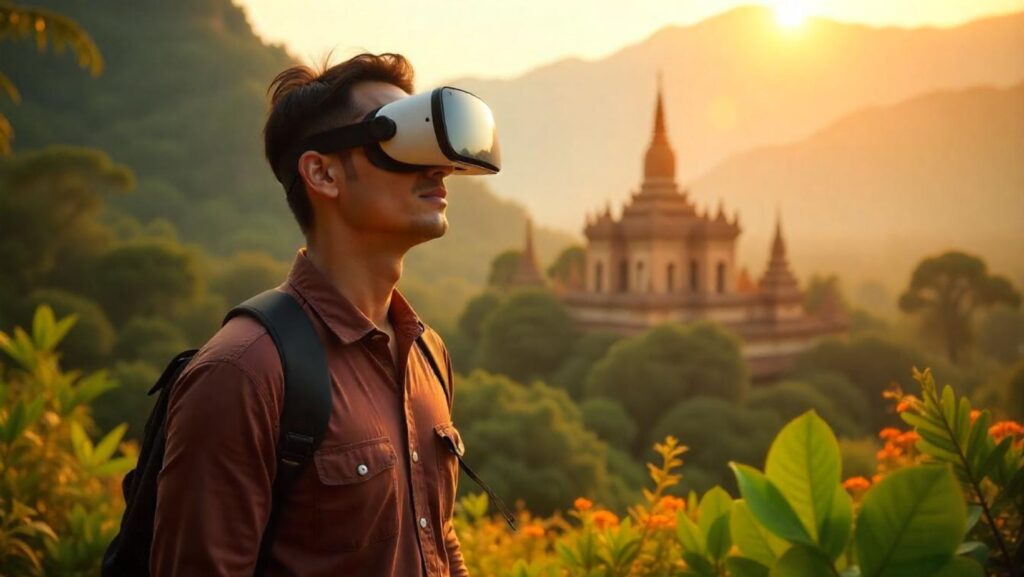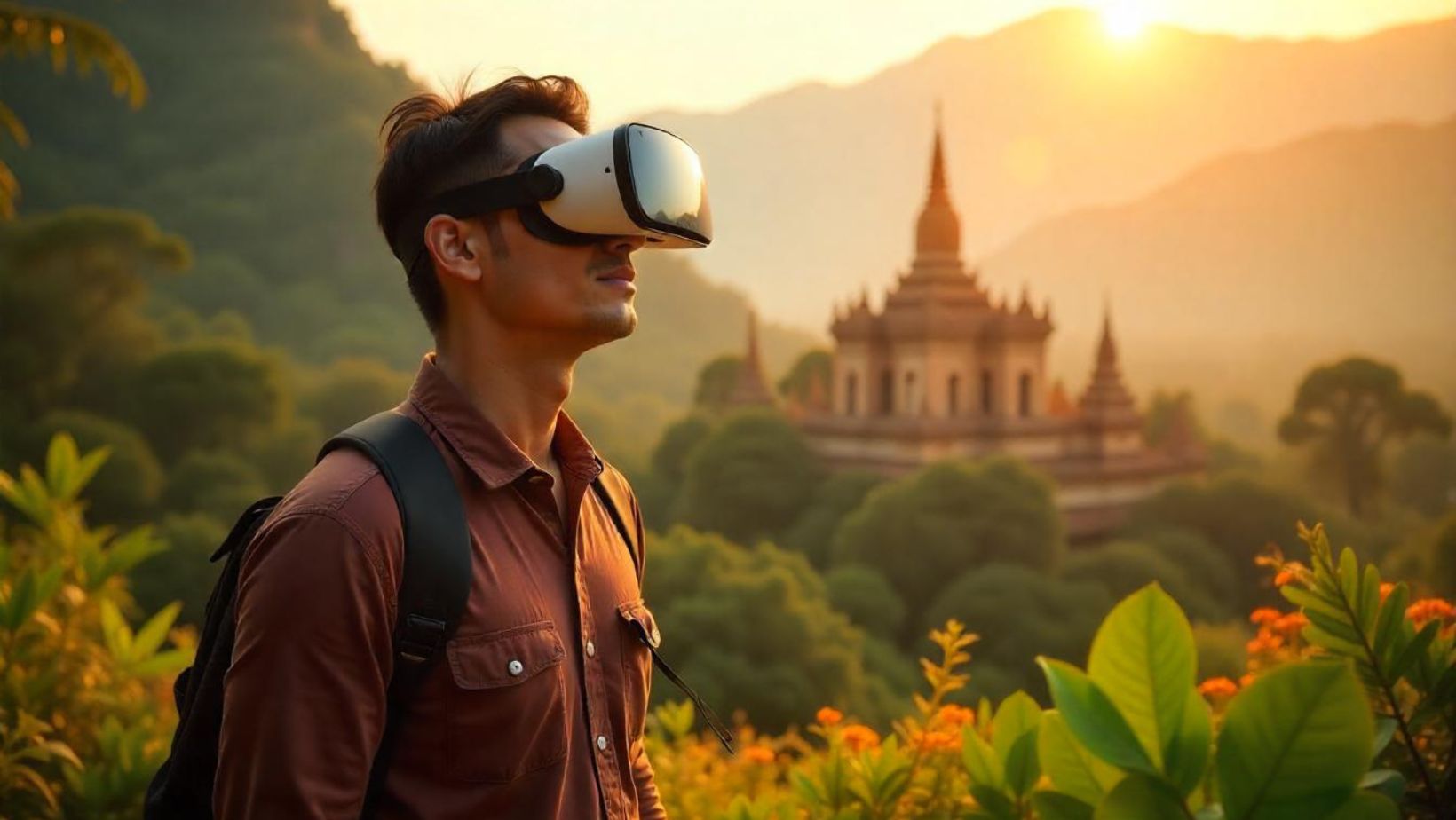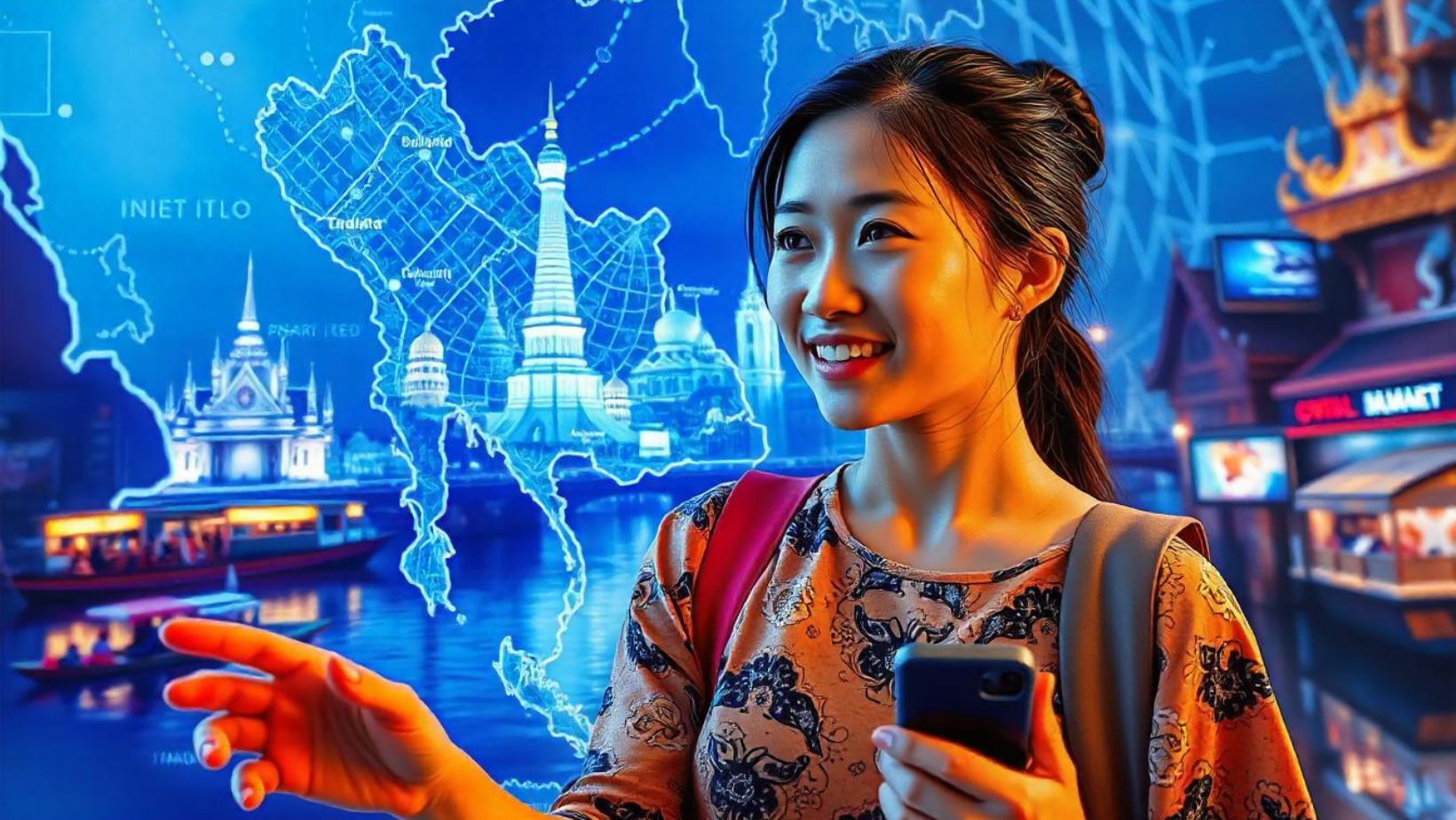

Imagine being able to wander through the bustling streets of Bangkok, admire the ancient beauty of Thai temples, or even join in a vibrant festival—all without setting foot in Thailand. That’s what virtual tourism, powered by augmented and virtual reality, is starting to make possible, and Thailand is right at the center of this trend. With advanced technology bringing destinations to life, travelers worldwide can now experience the charm and culture of Thailand from anywhere. But what’s so special about these “digital escapes,” and why is Thailand leading the charge?
The Evolution of Virtual Tourism in Thailand
Thailand saw early on how virtual tourism could transform the way people experience travel. As travel restrictions made physical visits tough or impossible, Thailand’s tourism industry embraced VR to offer high-resolution experiences of its iconic spots. From the lush jungles of Chiang Mai to the sun-soaked beaches of Phuket, VR has allowed users to explore Thailand’s best sights without having to board a plane. And it’s not just tourists who benefit; the tourism industry itself can reach a global audience more easily, building a new kind of engagement.
The country offers virtual tours of sacred temples, bustling markets, and natural wonders, all rendered in such detail that you can almost feel the tropical breeze. It’s clear that this approach isn’t just a substitute for travel; it’s a whole new way of experiencing it. As demand grows for remote travel experiences, Thailand’s decision to invest in VR tourism is setting a high standard that other destinations are beginning to notice.
The Entertainment Connection: Where Virtual Tourism Meets Online Entertainment
Interestingly, Thailand’s use of VR in tourism has crossed over into other online entertainment sectors, including gaming. In particular, online casinos are beginning to incorporate VR and immersive experiences as well, allowing users to enjoy everything from poker to roulette tables with a lifelike touch. For instance, such virtual spaces of online casinos could let players “sit” at a table in a sleek, digitally recreated Thai resort, adding an exotic flair to the experience. This mix of virtual tourism and online gaming creates a unique appeal for users who seek both entertainment and cultural exploration.
Just as VR tourism lets people explore temples or festivals, VR in online casinos provides a sense of “being there,” even when the players are thousands of miles away. With VR headsets, players can experience a casino atmosphere that feels real, down to the sounds of shuffling cards and the bustling energy of a game. Some Thai-inspired online casino platforms offer settings that mimic popular tourist spots, blending the excitement of gaming with a cultural twist.
These advances demonstrate how virtual experiences are evolving to serve different interests, from tourism to online gaming. Both sectors benefit from the allure of immersion, showing just how versatile VR can be. Plus, these developments allow Thailand to showcase its cultural elements in unexpected places, such as online casinos, which adds an entirely new dimension to virtual travel and entertainment.
The Psychological Appeal of Virtual Escapism
So, why are people so drawn to these virtual escapes? The answer goes beyond convenience. In times when travel can be restricted, virtual tourism gives people a way to satisfy their curiosity, relax, and connect with a culture they may not have been able to experience otherwise. Imagine the calm that comes with virtually stepping into a peaceful Thai temple or the excitement of watching a traditional festival unfold in real time—all from the comfort of your home.
Psychologists point out that these virtual experiences can provide real mental health benefits. They offer a sense of relaxation and distraction, almost like a mini-vacation for the mind. Especially for those with busy schedules or limited travel options, VR allows a unique form of escapism that’s not only stress-relieving but can also be a refreshing break from routine. Virtual tourism gives people a taste of Thai culture, offering them a glimpse into the vibrant life, traditions, and spirituality of the country.
Sustainability in Virtual Tourism: Reducing Environmental Impact
One of the biggest perks of virtual tourism is its eco-friendliness. Physical travel comes with environmental costs—think of the carbon emissions from flights, the toll of large crowds on natural sites, and the resources used in hospitality services. Virtual tourism sidesteps all of this by allowing people to experience the magic of travel without leaving an environmental footprint.

In Thailand, this shift also means that delicate ecosystems and heritage sites can be preserved with fewer disturbances. Places like marine parks, which are vulnerable to the impact of mass tourism, benefit from fewer physical visitors. VR allows people to enjoy these areas responsibly, which is crucial for the long-term preservation of Thailand’s natural and cultural heritage.
What’s more, VR tourism provides a kind of “backup” record of cultural landmarks, allowing future generations to enjoy Thailand’s beauty even if environmental or human factors change the physical landscape. Thailand’s approach to VR tourism, then, doesn’t just serve today’s travelers—it’s a sustainable investment for future generations as well.
Conclusion
Thailand’s embrace of VR in tourism is more than just a digital trend; it’s a new way to share the richness of Thai culture with the world. By combining high-tech innovation with a deep respect for their cultural heritage, Thailand is creating immersive experiences that resonate globally. Whether it’s through virtual visits to temples, beaches, or even a spin in an online casino, Thailand is showing how technology can make travel more accessible, enjoyable, and sustainable.
As VR and AR continue to evolve, Thailand’s leadership in virtual tourism offers a glimpse of what’s possible. In a world where boundaries are increasingly blurred by technology, the ability to explore and connect with new places from afar may just redefine the future of travel.












